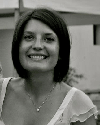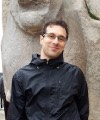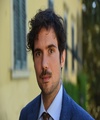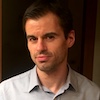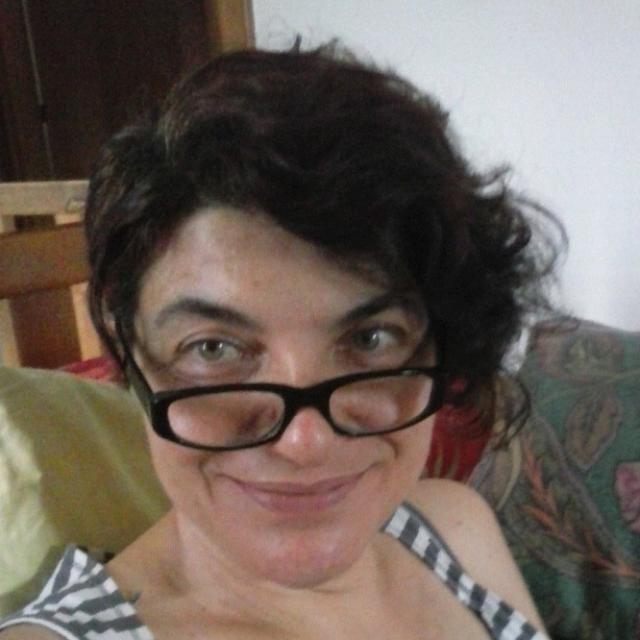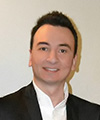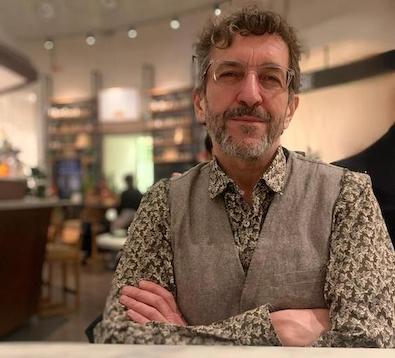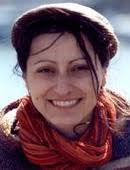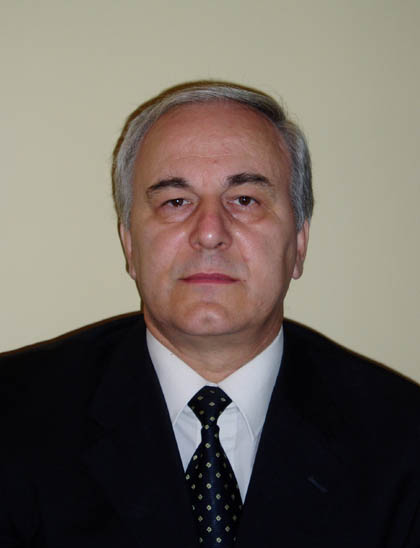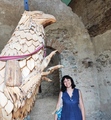Studying at the University of Verona
Here you can find information on the organisational aspects of the Programme, lecture timetables, learning activities and useful contact details for your time at the University, from enrolment to graduation.
Academic calendar
The academic calendar shows the deadlines and scheduled events that are relevant to students, teaching and technical-administrative staff of the University. Public holidays and University closures are also indicated. The academic year normally begins on 1 October each year and ends on 30 September of the following year.
Course calendar
The Academic Calendar sets out the degree programme lecture and exam timetables, as well as the relevant university closure dates..
| Period | From | To |
|---|---|---|
| Sem 1A | Sep 23, 2019 | Oct 31, 2019 |
| Sem 1B | Nov 11, 2019 | Jan 11, 2020 |
| Sem 2A | Feb 17, 2020 | Mar 28, 2020 |
| Sem 2B | Apr 6, 2020 | May 30, 2020 |
| Session | From | To |
|---|---|---|
| Sessione d'esame invernale | Jan 13, 2020 | Feb 15, 2020 |
| Sessione d'esame estiva (gli esami sono sospesi durante la sessione di laurea) | Jun 3, 2020 | Jul 25, 2020 |
| Sessione d'esame autunnale | Aug 24, 2020 | Sep 19, 2020 |
| Session | From | To |
|---|---|---|
| Sessione di laurea estiva | Jul 6, 2020 | Jul 11, 2020 |
| Sessione di laurea autunnale 19-20 | Nov 2, 2020 | Nov 7, 2020 |
| Period | From | To |
|---|---|---|
| Festa di Ognissanti | Nov 1, 2019 | Nov 1, 2019 |
| Sospensione delle lezioni | Nov 2, 2019 | Nov 2, 2019 |
| Festa dell'Immacolata | Dec 8, 2019 | Dec 8, 2019 |
| Vacanze di Natale | Dec 23, 2019 | Jan 6, 2020 |
| Vacanze di Pasqua | Apr 10, 2020 | Apr 14, 2020 |
| Festa della Liberazione | Apr 25, 2020 | Apr 25, 2020 |
| Festa del Lavoro | May 1, 2020 | May 1, 2020 |
| Sospensione delle lezioni | May 2, 2020 | May 2, 2020 |
| Festa del Santo Patrono | May 21, 2020 | May 21, 2020 |
| Sospensione delle lezioni | May 22, 2020 | May 23, 2020 |
| Festa della Repubblica | Jun 2, 2020 | Jun 2, 2020 |
| Vacanze estive | Aug 10, 2020 | Aug 15, 2020 |
Exam calendar
Exam dates and rounds are managed by the relevant Culture and Civilisation Teaching and Student Services Unit.
To view all the exam sessions available, please use the Exam dashboard on ESSE3.
If you forgot your login details or have problems logging in, please contact the relevant IT HelpDesk, or check the login details recovery web page.
Should you have any doubts or questions, please check the Enrollment FAQs
Academic staff
 augusto.barbi@univr.it
augusto.barbi@univr.it

Bassetti Massimiliano
 massimiliano.bassetti@univr.it
massimiliano.bassetti@univr.it
 045802 8376
045802 8376
 evita.calabrese@univr.it
evita.calabrese@univr.it
 marco.dallavalle@univr.it
marco.dallavalle@univr.it
 fatima.elmatouni@univr.it
fatima.elmatouni@univr.it
Hatzikiriakos Alexandros Maria
 alexandrosmaria.hatzikiriakos@univr.it
alexandrosmaria.hatzikiriakos@univr.it
Kaczko Sara
 francesco.lupi@univr.it
francesco.lupi@univr.it
Maganuco Anna Maria Grazia Rita
 anna.maganuco@univr.it
anna.maganuco@univr.it

Mastrocinque Attilio
 attilio.mastrocinque@univr.it
attilio.mastrocinque@univr.it
 +39 045802 8386
+39 045802 8386
 linda.napolitano@univr.it
linda.napolitano@univr.it
 giulia.pedrucci@univr.it
giulia.pedrucci@univr.it
 dino.piovan@univr.it
dino.piovan@univr.it
 alberto.scandola@univr.it
alberto.scandola@univr.it
Tani Stefano
 stefano.tani@univr.it
stefano.tani@univr.it
 +39 045802 8110
+39 045802 8110
 sonia.trovato@univr.it
sonia.trovato@univr.it
 carlo.vannini@accademiabelleartiverona.it
carlo.vannini@accademiabelleartiverona.it
 gianmaria.varanini@univr.it
gianmaria.varanini@univr.it
Study Plan
The Study Plan includes all modules, teaching and learning activities that each student will need to undertake during their time at the University.
Please select your Study Plan based on your enrollment year.
1° Year
| Modules | Credits | TAF | SSD |
|---|
1 module to be chosen among the following2° Year activated in the A.Y. 2020/2021
| Modules | Credits | TAF | SSD |
|---|
Latin literature (i)
2 modules to be chosen among the following1 module to be chosen among the following2 modules to be chosen among the following3° Year activated in the A.Y. 2021/2022
| Modules | Credits | TAF | SSD |
|---|
2 modules to be chosen among the following1 module to be chosen among the following1 module to be chosen among the following| Modules | Credits | TAF | SSD |
|---|
1 module to be chosen among the following| Modules | Credits | TAF | SSD |
|---|
Latin literature (i)
2 modules to be chosen among the following1 module to be chosen among the following2 modules to be chosen among the following| Modules | Credits | TAF | SSD |
|---|
2 modules to be chosen among the following1 module to be chosen among the following1 module to be chosen among the following| Modules | Credits | TAF | SSD |
|---|
Legend | Type of training activity (TTA)
TAF (Type of Educational Activity) All courses and activities are classified into different types of educational activities, indicated by a letter.
Introduction to Linguistics LT (i) (2019/2020)
Teaching code
4S02162
Academic staff
Coordinator
Credits
12
Language
Italian
Scientific Disciplinary Sector (SSD)
L-LIN/01 - HISTORICAL AND GENERAL LINGUISTICS
Period
Sem 1A, Sem 1B
Learning outcomes
The goal of this course is to have the student acquainted with some basic notions concerning several aspects of human language. The course aims to provide the epistemic and methodological basis for general linguistics and historical linguistics. To reach this goal, some of the key concepts of modern language science will be illustrated, such as the distinction between language and languages and the articulation in analytical levels, and the description of the main phonological, morpho-syntactic and semantic phenomena in the perspective of synchronic analysis and with reference to both Italian and other languages typologically and genealogically distant from one another. The main phenomena of change and linguistic contact in the diachronic key will also be discussed.
Program
The course will cover the following topics:
Fundamentals of general linguistics and historical linguistics.
1) General linguistics (prof. Giusfredi): fundamental characteristics of human language; basic notions of phonetics and phonology, morphology, syntax, semantics and pragmatics.
2) Historical linguistics (prof. Cotticelli): history of the discipline, historical-comparative method; notions of language change, kinship and linguistic family, analogy, Indo-European languages and language families of the world; models of language classification, typological classifications, models for the interpretation of linguistic change (neogrammatic, geolinguistic, sociolinguistic), linguistic contact.
MAIN TOPICS OF THE PROGRAM:
1. key concepts of modern science of language
2. distinction between language and languages
3. description of the linguistic system on the different levels of analysis in synchronic perspective
4. main phonological phenomena,
5. main morpho-syntactic phenomena
6. main semantic and lexical phenomena, both in Italian and in other languages typologically and genealogically distant from each other
7. typological classification of world languages
8. main phenomena of language change
9. main phenomena of language contact in diachronic and synchronic view.
10. Description of the Italian dialects
11. Elements of sociolinguistics
TEACHING MATERIALS
In addition to the mandatory texts for the written and oral exam (see below), the student can use the following in-depth texts
- scripts by the teachers
- further materials available on the platform
- exercises
1. PART ONE
1a. Scripts on the platform
1b. G. Graffi - S. Scalise, Le lingue e il linguaggio. Introduzione alla linguistica, nuova edizione, Bologna, Il Mulino, 2013 (ch. 1, 2, 4, 5, 7, 8, 11 and l’Appendice).
Exercises related to all the chapters of the volume, and in particular exercises of phonetic transcription (one of the topic of the examination), are available on the website of the publisher "Il Mulino" (www.mulino.it), registering in the area called "Aulaweb".
2. PART
2.a. Scripts on the platform
2.b. G. Graffi - S. Scalise, Le lingue e il linguaggio. Introduzione alla linguistica, nuova edizione, Bologna, Il Mulino, 2013 (capitoli 3, 9, 10).
2.c. E. Magni, Linguistica storica, Bologna, Patron, 2014.
3) REFERENCES for further information
3a. Lessico di Linguistica, a cura di Paola Cotticelli Kurras, Edizioni dell’Orso, Alessandria 2007.
3.b. R. Lazzeroni, “Il mutamento linguistico”, in R. Lazzeroni (a cura di) Linguistica storica, 16^ ristampa 2011, Carocci, 14-54.
3.c. R. Gusmani, “Interlinguistica”, in R. Lazzeroni (a cura di) Linguistica storica, 16^ ristampa 2011, Carocci, 87-114.
Examination Methods
Due to the Coronavirus pandemic, and in accordance with the University of Verona guidelines, during the 2020 summer session the assessment modality will be modified as follows: online written and oral exam.
The objective of the examination is to verify the level of achievement of the previously indicated objectives of the course.
The exam consists of a written test with some open questions and some closed questions. Open questions are always present and require the student to describe a linguistic phenomenon, or theories and models learned during the study of texts.
The closed questions, on the other hand, allow us to apply the acquired knowledge on linguistic change, on phonetic transcription, on the analysis of propositions and morphology (mainly of Italian phenomena or of languages taken into consideration during the course). Examples of written exams are presented during the exercises.
Structure of the written exam:
- syntactical analysis of a short text
- short phonetic transcription,
- some multiple choice tests and open-ended questions about all the arguments of the course (both about general and historical linguistics).
The positive overcoming of the written exam gives admission to the oral exam.
Important notice: to pass the written exam, it is necessary to have the knowledge of basic grammatical notions (e.g., to be able to recognize the ‘subject’, the ‘predicate’, the ‘object’, etc., of a clause, to distinguish among the several kinds of subordinate clauses, to correctly classify the different parts of speech, the main linguistic changes, the historical-comparative method to classify language families, etc.). Such notions are available within any good school grammar.
Moreover, some special exercises will be organized on all the topics of the course, with bibliographical references even for non-attending students.
The oral examination covers all the topics of the course.
Type D and Type F activities
| years | Modules | TAF | Teacher |
|---|---|---|---|
| 1° 2° 3° | The origins of Christianity | F |
Augusto Barbi
(Coordinator)
|
| years | Modules | TAF | Teacher | |
|---|---|---|---|---|
| 1° | Fondamenti per introduzione allo studio del linguaggio | F |
Federico Righi
(Coordinator)
|
|
| 1° 2° 3° | Lectures "Musiche/Culture/Civiltà" | F |
Vincenzo Borghetti
(Coordinator)
|
|
| 1° 2° 3° | Laboratory of ancient greek | F |
Dino Piovan
(Coordinator)
|
|
| 1° 2° 3° | Intercomprehension laboratory between the Romance languages | F |
Alessandra Zangrandi
(Coordinator)
|
|
| 1° 2° 3° | Opera Workshop | F |
Nicola Pasqualicchio
(Coordinator)
|
|
| 1° 2° 3° | Presente e futuro del pianeta. economia, sostenibilità e politiche | F |
Gian Maria Varanini
(Coordinator)
|
|
| 1° 2° 3° | How to write your dissertation | F |
Alessandro Arcangeli
(Coordinator)
|
|
| 1° 2° 3° | History of Greek and Roman theatre (i) | D |
Gherardo Ugolini
(Coordinator)
|
|
| years | Modules | TAF | Teacher | |
|---|---|---|---|---|
| 3° | Roman History (p) | D |
Attilio Mastrocinque
|
|
| 1° 2° 3° | The origins of Christianity | F |
Augusto Barbi
(Coordinator)
|
|
| years | Modules | TAF | Teacher |
|---|---|---|---|
| 1° 2° 3° | Esercitazioni di metrica latina |
Fatima El Matouni
(Coordinator)
|
|
| 1° 2° 3° | Summer School internazionale in Studi danteschi Ravenna-Verona | F |
Paolo Pellegrini
(Coordinator)
|
| 1° 2° 3° | Univero’ 2019 | F |
Tiziana Franco
(Coordinator)
|
Career prospects
Module/Programme news
News for students
There you will find information, resources and services useful during your time at the University (Student’s exam record, your study plan on ESSE3, Distance Learning courses, university email account, office forms, administrative procedures, etc.). You can log into MyUnivr with your GIA login details: only in this way will you be able to receive notification of all the notices from your teachers and your secretariat via email and soon also via the Univr app.
Graduation
List of theses and work experience proposals
| theses proposals | Research area |
|---|---|
| tesi di Glottologia, Storia comparata, Linguistica storica | ENGLISH LANGUAGE - Grammar and Syntax – Grammatik und Syntax |
| tesi di Glottologia, Storia comparata, Linguistica storica | GERMANIC LANGUAGE - Dialectology - Dialektologie |
| tesi di Glottologia, Storia comparata, Linguistica storica | HUMANITIES & SOCIAL STUDIES - HUMANITIES & SOCIAL STUDIES |
| tesi di Glottologia, Storia comparata, Linguistica storica | Indo-European languages & literatures - Indo-European languages & literatures |
| tesi di Glottologia, Storia comparata, Linguistica storica | LINGUISTICS - LINGUISTICS |
| Stage | Research area |
|---|---|
| Lavorare in archivio | Various topics |
| L'iter del libro in biblioteca | Various topics |
Gestione carriere
Linguistic training CLA
Student mentoring
Requisiti classi di abilitazione insegnamento
Requisiti necessari per accedere alle classi di abilitazione per l'insegnamento.
vedi allegato pdf
Inoltre, per informazioni sui 24 CFU nelle discipline antropo-psico-pedagogiche e nelle metodologie e tecnologie didattiche, si veda -> LINK
Documents
| Title | Info File |
|---|---|
|
|
pdf, it, 307 KB, 30/11/21 |

















